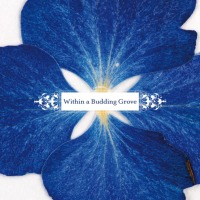I just finished Gerald Kersh’s Night and the City over the weekend. I’ll be writing it up shortly. While reading it though I was amused by this description of British chain store Woolworth’s which explains both why it survived so long and why it was no surprise when it finally went bust at the end of 2008. This was written in 1938, but still held pretty much true seventy years later:
But next door to the stationer’s there was a Woolworth’s store. She went in – not to buy anything, but only to look around. Nobody goes into Woolworth’s shops to buy anything: one visits Woolworth’s as a kind of museum, merely to look. And one comes out with a pot of paint, a hacksaw, a kettle, a pound of sweets, three egg-cups, a writing-pad, a lampshade, an electric-light bulb, a typewriter-rubber, an ice-cream cone, a rubber belt, two apostle spoons, a Swiss roll, a toilet roll and a packet of seeds.
I don’t even know what an apostle spoon is, but it wouldn’t surprise me to learn they’d still sold them right up to the end.












Barbara Hutton was the Woolworth heiress. Quite a story there.
What about the pick-and-mix?
The former chief accountant in me can’t help thinking that inventories must have been a nightmare.
We have the same stores in Paris, of course. The one used by Zola for Ladies’ Paradise closed in 1974 though.
The first Christmas that I was old enough to buy presents for my family myself I was dropped off at Woolworths and picked up 45 minutes later — having bought something for mother, father and both sisters.
Nice post, Max. I still mourn the loss of our local Woolworths, and have happy memories of Woolworths induced mania: buying far too much crap and being unable to fit it all under the pushchair for the slog back up the hill.
Am happy to learn that it has been accurately, and deservedly, immortalised in fiction!
The pick and mix isn’t mentioned.
True story though. I worked as a student in a department store’s snack area. They had a pick and mix section. I worked every Sunday and every Sunday I repeatedly got the same question.
“Can I mix the pick and mix?”
To which I always gave the same answer.
“Yes. You may pick it and you may mix it.”
I remember the words both of the question (it never seemed to vary) and my response very clearly. Just as I recall the looped music tape in the store which played an awful song called “Girl I wanna make you sweat”. I got so famliar with the tape I’d count down. Twenty songs to Girl I wanna make you sweat. Nineteen songs…
It’s not a good song.
Otherwise, I’m amazed by the other comments how international it seems to have been. I’m not surprised there was a French equivalent. When it went bust in the UK the newspapers were full of articles mourning its passing, but nobody seemed to have shopped there for years.
The toughest bit was the staff. They got laid off just before Christmas. I doubt the management had a choice and I suspect it grieved them to do it (and I imagine they lost their own jobs shortly thereafter), but none of that helps those affected. Some of the staff had worked there for years.
I have same experience with tapes in a supermarket, except that, if you needed a French cliché, I was working in the cheese department. How customers can be tiresome sometimes.
Sending lay-off letters for Christmas is also international, I’m afraid. Isn’t that having a sick sense of humour ?
God that is an appalling song to be reminded of. I now have an earworm of it but but it’s mixed up with the equally execrable Mysterious Girl by P Andre. It’s a faux-reggae medley from Hades.
“The horror…..the horror….”
I really enjoyed N&TC. I was reading it on a train with Paula reading over my shoulder. She asked me when it was set and was surprised to find out that it was set and written in the 30s, she thought it had been written in the 50s. My initial thoughts were that perhaps Kersh was ahead of his time, or perhaps, with the war intervening, nothing much had changed in the way this milieu spoke and acted between the 30s and 50s.